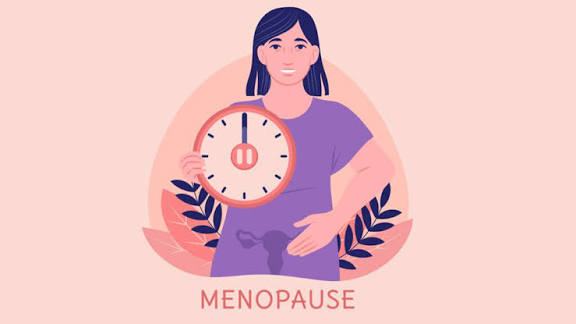
Balancing Hormones Naturally During Menopause
Menopause brings hormonal shifts that often cause discomfort, but natural methods can ease the transition. Balanced nutrition, regular exercise, stress control, hydration, quality sleep, and herbal remedies all support hormonal harmony. Healthy fats and lifestyle adjustments further reduce symptoms like hot flashes and mood swings.
💪 Fitness Guru
37 min read · 19, Sep 2025

Introduction
Menopause is a natural stage in every woman’s life, yet it often brings a mix of physical, emotional, and hormonal changes that can feel overwhelming. As estrogen, progesterone, and other hormones decline, symptoms such as hot flashes, mood swings, sleep issues, and weight gain may appear.
The good news? Nature offers gentle, effective ways to balance hormones without relying solely on medication. With mindful lifestyle choices, nutrition, exercise, and stress management, you can ease menopause symptoms, support hormonal balance, and feel more energetic and grounded.
In this article, we’ll explore how to balance hormones naturally during menopause, the science behind it, and daily practices you can adopt for a smoother, healthier transition. Menopause is a natural stage in every woman’s life, a transition that usually occurs between the ages of forty-five and fifty-five, though it can come earlier or later for some. It marks the end of the reproductive years, when the ovaries gradually reduce the production of hormones such as estrogen and progesterone. While it is a biological milestone, the changes it brings are often accompanied by uncomfortable symptoms like hot flashes, night sweats, mood swings, irregular sleep, weight gain, low energy, and even changes in skin and hair health. These shifts can feel overwhelming, but the good news is that many women are finding effective ways to balance their hormones naturally without immediately relying on synthetic treatments or invasive solutions. The body has an incredible ability to adapt and restore equilibrium when given the right support, and by focusing on lifestyle, nutrition, and mindful practices, the menopause journey can become more balanced and manageable.
One of the most powerful tools for hormonal balance during menopause is food. The diet you follow has a direct impact on how your body manages the transition, since nutrients act as raw materials for hormone production and regulation. Including phytoestrogen-rich foods such as soy, flaxseeds, sesame seeds, chickpeas, and lentils can help mimic the effects of estrogen in the body, reducing the severity of hot flashes and maintaining bone density. Whole grains, colorful fruits, and vegetables are rich in fiber and antioxidants, which improve digestion, control blood sugar spikes, and protect cells from oxidative stress that may worsen hormonal imbalance. Lean proteins such as fish, eggs, and legumes not only support muscle mass but also stabilize mood and energy levels. At the same time, cutting down on processed foods, refined sugar, and caffeine can prevent unnecessary hormone fluctuations that lead to irritability and fatigue. Hydration also plays a subtle but crucial role, since drinking plenty of water helps regulate temperature and supports metabolic functions that may be disrupted during menopause.
Exercise is another natural and effective way to support hormonal harmony. Physical activity reduces stress hormones like cortisol, boosts endorphins that improve mood, and maintains a healthy weight that is often challenged during this phase. Strength training is especially beneficial because it helps counteract the natural loss of bone density and muscle mass that comes with lower estrogen levels. Weight-bearing exercises such as walking, yoga, pilates, or even simple bodyweight routines at home can keep the body strong and flexible. Cardiovascular activities improve circulation, support heart health, and increase stamina, which often declines during menopause. Beyond the physical benefits, exercise is a mental release, offering a sense of control and emotional stability at a time when mood swings can feel unpredictable.
Stress management is perhaps one of the most underestimated aspects of natural hormone balance. Chronic stress elevates cortisol, which interferes with estrogen and progesterone functions, worsening menopause symptoms like anxiety, poor sleep, and low libido. Practices such as deep breathing, meditation, mindfulness, or even spending time in nature can significantly lower stress levels. Yoga and tai chi, for example, combine gentle movement with breathwork, which not only improves flexibility but also calms the nervous system. Journaling and creative hobbies provide an emotional outlet, helping women process feelings and maintain a positive mindset. Prioritizing self-care in this stage is not indulgence but necessity, since the body responds to nurturing by finding better balance internally.
Sleep is another cornerstone of hormonal health, yet many women find it elusive during menopause. Night sweats and restlessness can disrupt quality rest, which in turn impacts energy, mood, and weight management. Creating a calming bedtime routine can signal the body to relax and prepare for rest. Keeping the bedroom cool, avoiding heavy meals or caffeine late in the evening, and reducing screen time before bed can make a big difference. Relaxation techniques such as herbal teas, warm baths, or aromatherapy with lavender or chamomile oils can also promote better sleep. When the body gets restorative rest, hormones have the opportunity to reset and function more smoothly.
Alongside lifestyle changes, certain natural supplements and herbs are widely recognized for their role in supporting women during menopause. Black cohosh, red clover, evening primrose oil, and ashwagandha are often used to reduce hot flashes, improve mood, and ease anxiety. Vitamin D and calcium are vital for maintaining bone health, while omega-3 fatty acids found in fish oil or flaxseed oil help support heart health and reduce inflammation. Magnesium plays a role in calming the nervous system and improving sleep quality, while B vitamins support energy and mental clarity. However, it is important to remember that supplements are not a one-size-fits-all solution, and consulting with a healthcare professional before introducing them ensures safe and effective use.
Emotional and social support is equally important in this journey. Many women feel isolated or misunderstood while going through menopause, but connecting with peers, joining support groups, or simply sharing experiences with close friends and family can reduce feelings of loneliness. Menopause is not just a physical transition; it is also emotional and spiritual. Viewing it as a time for self-discovery and renewal, rather than decline, can shift the perspective toward empowerment. Many women find that this stage allows them to focus more on personal growth, hobbies, and goals that may have been set aside earlier in life.
Ultimately, balancing hormones naturally during menopause is about embracing a holistic lifestyle that integrates body, mind, and spirit. While the symptoms can sometimes feel challenging, they are signals from the body asking for care, attention, and change. By nourishing yourself with wholesome foods, moving your body regularly, managing stress, ensuring quality sleep, considering supportive herbs, and cultivating meaningful relationships, you can create a strong foundation for balance. Menopause then becomes less of a struggle and more of a transition into a new, vibrant chapter of life. It is a reminder that the body is resilient, adaptable, and capable of finding harmony again when supported in natural and gentle ways.
Understanding Hormonal Changes in Menopause
Menopause usually occurs between ages 45–55 and marks the end of menstrual cycles. The major hormones affected are:
- Estrogen: Regulates menstrual cycle, skin elasticity, bone strength, and mood.
- Progesterone: Balances estrogen, supports sleep, and calms the nervous system.
- Testosterone: Affects energy, libido, and muscle mass.
- Cortisol & Insulin: Stress and blood sugar hormones that can worsen menopause symptoms if unbalanced.
When these hormones fluctuate or decline, the body struggles to maintain balance, leading to symptoms like hot flashes, night sweats, vaginal dryness, fatigue, mood swings, and weight gain.
The goal of natural hormone balancing is not to replace hormones artificially, but to support the body so it adapts gracefully to changes.
Nutrition for Hormonal Balance
Food is medicine, and the right diet during menopause can make a huge difference.
1. Phytoestrogens (Plant Estrogens)
These plant compounds mimic estrogen in the body, reducing hot flashes and mood swings.
Sources: Soy, flaxseeds, sesame seeds, chickpeas, lentils.
2. Healthy Fats
Omega-3s reduce inflammation, support brain health, and ease joint pain.
Sources: Walnuts, chia seeds, flaxseeds, salmon.
3. Magnesium & Calcium
Support bone strength and reduce cramps or restlessness.
Sources: Almonds, spinach, pumpkin seeds, yogurt.
4. Vitamin D
Balances calcium absorption and boosts mood.
Sources: Sunlight, fortified milk, mushrooms.
5. Protein
Prevents muscle loss and supports metabolism.
Sources: Eggs, paneer, lentils, quinoa.
6. Hydration
Dehydration worsens hot flashes and headaches.
Aim for 8–10 glasses of water, infused with mint, lemon, or cucumber.
Lifestyle Practices for Hormonal Balance
1. Exercise
- Cardio: Improves heart health, reduces hot flashes.
- Strength Training: Prevents bone loss and supports metabolism.
- Yoga & Stretching: Lowers stress and improves flexibility.
2. Stress Management
High stress raises cortisol, which disrupts estrogen and progesterone.
- Meditation, deep breathing, or journaling for 10 minutes daily.
- Nature walks to calm the nervous system.
3. Sleep Hygiene
- Maintain a consistent sleep schedule.
- Limit caffeine and heavy meals before bed.
- Herbal teas like chamomile or lavender to relax.
4. Detox Habits
- Avoid excess alcohol, caffeine, and processed food.
- Support liver health with turmeric, beets, and leafy greens (liver helps metabolize hormones).
Natural Remedies and Herbs
- Ashwagandha: Balances cortisol, reduces anxiety, improves sleep.
- Maca Root: Boosts energy, mood, and libido.
- Black Cohosh: Traditionally used for hot flashes and night sweats.
- Evening Primrose Oil: Eases breast tenderness and skin dryness.
- Green Tea: Antioxidant-rich, supports metabolism and reduces inflammation.
(Always consult a doctor before adding supplements or herbs, especially if on medication.)
Daily Hormone-Balancing Routine
Morning
- 10 minutes of yoga or stretching
- Warm lemon water with flaxseeds or chia
- Protein-rich breakfast: oats with nuts, seeds, and fresh fruits
Midday
- Balanced lunch with whole grains, lentils, and leafy greens
- 10-minute post-meal walk
- Herbal tea break with peppermint or green tea
Evening
- Light exercise: brisk walk, dance, or yoga
- Protein + veggie dinner (tofu, paneer, or grilled fish with salad)
- Relaxation ritual: deep breathing or journaling before bed
Weekly Hormone-Supporting Practices
- Strength training 2–3 times per week
- At least 1 yoga or meditation session focused on stress relief
- Sun exposure for 10–15 minutes to boost Vitamin D
- Self-care practice: massage with sesame or coconut oil
- Add one hormone-friendly recipe, such as flaxseed smoothie or chickpea salad
Common Menopause Problems and Natural Prevention
Hot Flashes & Night Sweats
- Stay hydrated, dress in light cotton, avoid spicy foods.
- Add flaxseeds and soy to meals.
Mood Swings & Anxiety
- Meditation, journaling, or ashwagandha tea.
- Stay socially connected.
Weight Gain
- Prioritize strength training and balanced meals.
- Avoid processed sugar and excess alcohol.
Bone Weakness
- Load diet with calcium and Vitamin D.
- Regular resistance exercises.
Low Energy & Fatigue
- Eat protein-rich snacks like almonds or boiled eggs.
- Practice mindful rest and avoid overstimulation from screens.
Myths About Menopause & Hormones: Busted!
“Menopause means the end of femininity.”
→ False. It’s a new, powerful phase of life, not the end of vitality.
“Only hormone replacement therapy works.”
→ Not true. Nutrition, exercise, and natural remedies can make a huge difference.
“Weight gain is unavoidable in menopause.”
→ Wrong. With the right habits, women can maintain a healthy weight.
“Hot flashes can’t be controlled naturally.”
→ False. Lifestyle shifts and phytoestrogen foods reduce frequency and intensity.
“Menopause is only about physical changes.”
→ Nope. It also brings emotional and spiritual growth if embraced mindfully.
Sample Daily Hormone-Friendly Meal Plan
Breakfast
- Oats with flaxseeds, walnuts, and berries
- Herbal tea or lemon water
Lunch
- Quinoa or brown rice with chickpea curry and leafy greens
- Fresh salad with lemon dressing
Evening Snack
- Handful of almonds or roasted pumpkin seeds
- Green tea or chamomile tea
Dinner
- Grilled tofu or paneer with sautéed vegetables
- Herbal tea with turmeric before bed
Conclusion
Menopause is not a disease—it’s a natural transition. The key lies in balancing hormones gently through food, lifestyle, and self-care. By adding phytoestrogens, omega-3s, and minerals to your diet, practicing yoga and meditation, and embracing daily mindful routines, you can ease symptoms and feel empowered during this stage of life.
Small, consistent habits—like starting your day with flaxseeds, enjoying calming herbal teas, or walking in the evening—can create big changes in your well-being.
Remember, menopause is not the end of vitality; it’s the beginning of a new chapter filled with wisdom, strength, and balance.
Q&A Section
Q1:- What is menopause and why do hormones become imbalanced during this stage?
Ans :- Menopause is a natural transition when ovaries reduce estrogen and progesterone production. This hormonal decline causes symptoms like hot flashes, mood swings, and sleep problems.
Q2:- How can diet help in balancing hormones naturally during menopause?
Ans :- A nutrient-rich diet with phytoestrogens (soy, flaxseeds), leafy greens, whole grains, and omega-3 fatty acids helps stabilize estrogen levels and reduce discomfort.
Q3:- Why is regular exercise important for hormonal balance in menopause?
Ans :- Physical activity reduces stress hormones, supports weight management, boosts endorphins, and helps regulate insulin, which collectively improves overall hormonal health.
Q4:- How does stress management impact menopause symptoms?
Ans :- High stress elevates cortisol, worsening hot flashes, sleep issues, and mood changes. Meditation, yoga, and deep breathing help balance hormones naturally.
Q5:- Can herbal remedies support hormonal balance during menopause?
Ans :- Yes, herbs like black cohosh, red clover, and ashwagandha are known to ease hot flashes, mood swings, and fatigue by supporting estrogen-like activity.
Q6:- What role does quality sleep play in managing menopause symptoms?
Ans :- Adequate rest regulates melatonin and cortisol, reducing fatigue, irritability, and night sweats, while supporting overall hormone health.
Q7:- Why is hydration important during menopause?
Ans :- Proper hydration reduces bloating, supports digestion, eases dryness, and helps the body manage temperature fluctuations caused by hormonal changes.
Q8:- How do healthy fats contribute to hormone regulation in menopause?
Ans :- Healthy fats from avocados, nuts, olive oil, and fatty fish support hormone production, brain health, and reduce inflammation.
Q9:- What lifestyle changes can help reduce menopause discomfort naturally?
Ans :- Avoiding caffeine, alcohol, and processed foods, while adopting mindfulness, consistent sleep patterns, and balanced nutrition, can ease symptoms.
Q10:- Is medical consultation still important when managing menopause naturally?
Ans :- Yes, consulting a healthcare professional ensures safe integration of natural remedies, checks for underlying issues, and guides personalized care.
Similar Articles
Find more relatable content in similar Articles

Prison-Style Fitness: Discipline and Routines Behind Bars...
Prison-style fitness emphasize.. Read More

Body Care Habits You Should Never Skip — For Both Him and H..
Body care isn’t just about lo.. Read More

Unisex Body Care Secrets: Tips for Healthy, Glowing, and Od..
Unisex body care is about mai.. Read More

Ice Workouts: Training in Extreme Cold for Fat-Burning...
“Discover the chilling science.. Read More
© 2024 Copyrights by rFitness. All Rights Reserved.